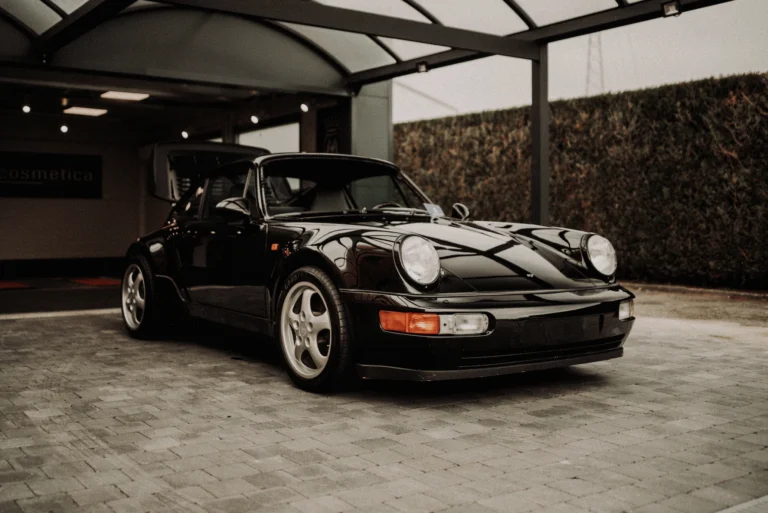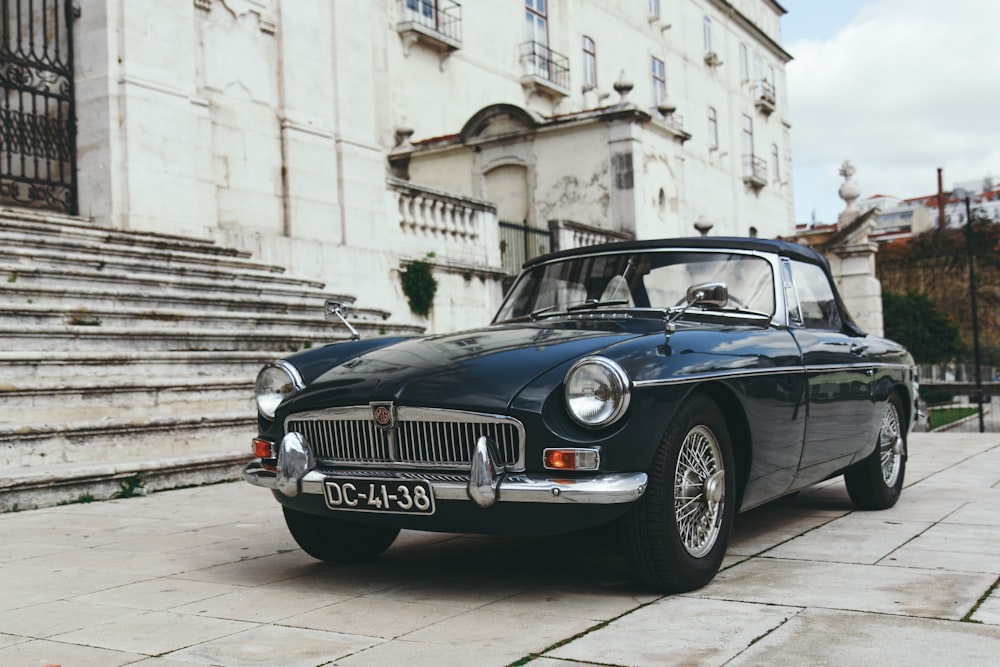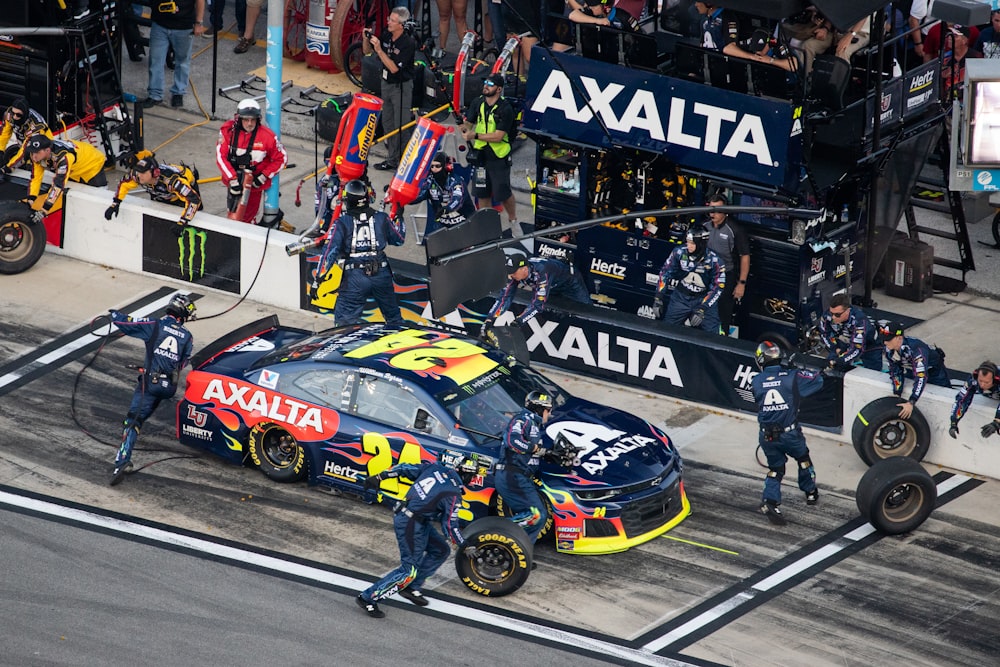Have you recently bought a new car that you want to take pictures of or do you have a passion for classic cars and want to take fantastic pictures at your next classic car meet? Then read on as we are here to guide you having researched the top cameras you will need to get that memorable shot.
Automotive photography is a unique genre of photography that requires a specialized set of skills and equipment. Capturing a beautiful shot of a car is not an easy task in today’s oversaturated industry with everyone holding a camera in their pockets.
What are The Best Cameras for Car Photography?
Car photography is a fascinating genre that demands the right tools to capture the essence of automobiles effectively. Whether you’re a professional automotive photographer or an enthusiast looking to capture stunning shots of cars, having the best camera can make a significant difference. In this guide, we’ll explore the top cameras suited for car photography across various categories, helping you make an informed decision.
To stand out from the crowd, you need to have the right equipment, especially a camera that can capture the finest details of a car from various angles. In this article, we will explore the best options available and help you pick the best camera for car photography, whether you are a professional or an amateur getting started.
So without further ado, let’s take a look at the best cameras for car photography;
Best Car Photography Cameras in 2025 – Our Review
Nikon Z 7II – Editors Pick

I think the Nikon Z 7II is the perfect camera for car photography enthusiasts. It features a 45.7 MP full-frame sensor and next-gen image processors that allow you to capture vibrant digital images at lightning speed. The buffer capacity has also been improved, so you can shoot bursts without having to worry about running out of space.
The menu navigation system is incredibly intuitive, making it very easy to use. And when it comes to lenses, the Nikon Z series has some great options for wide-angle shots as well as portrait and telephoto lenses for detail shots. Its autofocus system is reliable and fast, so you won’t have any issues with focusing on moving cars even in low-light conditions.
The in-body image stabilization also allows you to shoot handheld in virtually any situation. There are a few downsides in my opinion, the LCD screen cannot flip out sideways, which could limit your ability to preview compositions in portrait mode and the Nikon Z7II is not a cutting-edge camera and therefore it doesn’t have some of the newest features compared to others (as always you pay more for the newest features!)
Overall this camera is a workhorse and in a good price range for this quality. This is an excellent choice for car photographers looking for an advanced camera with superior performance capabilities.
Fujifilm X-T5 – Best Allrounder

The Fujifilm X-T5 is a powerful camera for the budding car photographer. I have this camera in my bag and use it daily as it is so versatile.
It features a 40.2MP APS-C CMOS sensor that delivers stunning image quality, alongside an in-body image stabilization to help you take sharp interior and exterior shots. The EVF is clear and beautiful, and it’s easy to make changes via the large dials and buttons.
With its weather sealing and improved battery life, the XT5 is perfect for car photographers, offering up to 15 FPS with a mechanical shutter or 13 FPS with electronic shutter as well as 20 FPS continuous shooting mode for action shots. It also captures subjects ata distance which can useful if you are on a race track for example and want to catch that car sweeping around the corner in the distance.
I really love this camera. It won’t break your budget either, making it an ideal choice for hobbyists hoping to capture high-quality photos of cars.
Nikon Z 30 – Best Budget Option

I think the Nikon Z30 is a great camera for people looking to take great car photographs and not spend too much on a camera. This vlogging-focused camera (maybe you own a car vlog?) boasts a 20.9 MP APS-C sensor that is compatible with the impressive range of Nikon Z lenses, meaning you won’t have to sacrifice quality while taking stunning images.
It’s small and well designed. You cannot help but notice how light weight it is, making it easy to carry around and snap fantastic pictures from anywhere. Despite its compact size, it packs plenty of features such as 11fps burst speed which makes capturing quick-moving subjects effortless.
Additionally, the menu system is more straightforward than other brands, making it friendly for first-time users. It lacks a viewfinder, image stabilization and an inbuilt flash which can be found in many more expensive cameras, but if you don’t need those features this is definitely an excellent camera for the cost-conscious photographer or vlogger!
Sony a7R V – Best Premium Option

Introducing the Sony A7R V, the latest entry into Sony’s acclaimed line of full-frame cameras. Offering high levels of quality and detail that professionals demand, the A7R V is a powerful choice for car photography. In fact, I would go as far as saying this is the best camera money can buy in this round up.
This camera is outfitted with more powerful image processors than its predecessors, boasting improved battery life and overall performance for excellent results. With exceptional resolution and image quality, unbeatable autofocus and impressive video capabilities, this camera has all the features you need for crisp, vibrant images.
Low light performance is impressive too, at speeds up to ISO 6400 with little grain or noise. Subject detection offers reliable autofocus capable of recognizing humans in wider scenes instead of just by their eye. The Sony A7R V also packs powerful stabilization for both photos and videos alike – perfect for capturing every car moment in stunning clarity.
Canon R56 II – Best For Video
The Canon EOS R6 Mark II is a must-have for car photographers. With its 24MP sensor, autofocus that can recognize a car, and built in stabilization, you’ll get perfect shots almost every time.
The camera also has a max shutter speed of 1/16,000 of a second and 40fps burst mode to take beautiful shots of fast action scenes. Additionally, videos made with this camera are also amazing – with 4K60p you can make some truly stunning clips.
Customizing the camera is easy too – the quick menu is redesigned to give you more options for AF and the AF on this camera really stands out; it can detect small subjects even when they’re tiny in your frame and it tracks them perfectly! So if you’re looking for an excellent hybrid camera for car photography or making car videos, then look no further than the Canon EOS R6 Mark II
Nikon D850 – Our Wildcard

The Nikon D850 FX-Format is a popular choice for car photographers and videographers. It features a 45.7MP resolution powered by a BSI full-frame image sensor with no optical low pass filter, allowing you to capture every detail of a vehicle, even in motion.
With 9fps continuous photo/video capability and 8K video quality, this camera will let you capture a variety of moments with ease. The camera’s tilting touchscreen also makes it easier to adjust to any preference while using it. Not only that, but this is also Nikon’s most versatile DSLR yet.
With its fast processor and D5’s AF sensor, this camera has enough power and speed to handle all kinds of car action, both on the track and on display. Furthermore, there are lots of new features included such as 4K video and timelapse capture modes which add even more versatility into the mix.
Whether you are looking for a state-of-the-art car photography camera or just a reliable option in general, the Nikon D850 FX-Format is definitely an option worth considering.
What to look for in a camera for car photography?
- Image Quality: A high-end sensor that can capture excellent image quality is essential for car photography. Look for a camera that offers high resolution and excellent dynamic range, which is especially useful when shooting in challenging lighting conditions.
- Auto Focus System: A robust and fast autofocus system is vital in car photography, especially when shooting moving vehicles. A camera with face detection and tracking capabilities can be beneficial.
- Burst Shooting Speed: If you’re capturing fast-moving cars, a camera with a high burst shooting speed can make all the difference. The faster the FPS (frames per second), the more chances you have of getting that perfect shot.
- Durability: Car photography can involve working in a variety of environments, so a durable, weather-sealed body is a bonus. This will keep the camera safe from dust and moisture.
- Lens Compatibility: A camera is only as good as its lens. Ensure the camera you choose is compatible with a wide range of lenses, particularly wide-angle and telephoto lenses, which are often used in car photography.
- Dynamic Range: Dynamic range is the difference between the darkest and lightest tones a camera can capture. A good dynamic range will enable you to preserve all the details in an image, even when shooting in challenging lighting conditions. Look for a camera with high dynamic range capabilities.
- Built-in Stabilization: Image stabilization is a must-have for car photography, as it can help reduce camera shake and blur to ensure sharper images. Look for a camera with built-in image stabilization, preferably one that works in both vertical and horizontal directions.
- Design: When you’re looking for a camera for car photography, it’s important to consider the ergonomics and design. Look for a camera that is comfortable to use and has all the controls you need within easy reach. It should also be lightweight enough to carry around all day without strain.
- Video Capabilities: While still photos are essential, ability to take videos of cars moving can be great for car enthusiasts and YouTubers. Look for a camera that offers both still and video capabilities, with features like slow motion and time lapse available.
- Price: It seems like every round up we write we mention price but it is so important to most of us given the cost of cameras. Make sure to factor in price when selecting the perfect camera for your car photography needs. Consider all the features offered by various cameras before deciding which is the best for you.
You may enjoy reading Photography Keywords and Definitions
Tips for Better Car Photography
- Use a polarizing filter: Reduce glare and enhance color saturation for vibrant car photos.
- Experiment with different angles: Explore various perspectives to find the most flattering angles for capturing cars.
- Pay attention to lighting conditions: Take advantage of natural light or use artificial lighting to highlight the contours and details of cars effectively.
- Incorporate interesting backgrounds: Choose visually appealing backgrounds that complement the car and add depth to your photographs.
- Utilize reflections creatively: Use reflections from glass surfaces or water bodies to create unique and captivating compositions.
Frequently Asked Questions:
Can I use a mirrorless camera for car photography?
Yes. There are excellent mirrorless options on the market like Sony’s Alpha series and Fujifilm’s X-series. However, a DSLR still offers better autofocus and battery life.
How important is fast shutter speed?
Fast shutter speed is crucial to capturing all the details of a moving car. It also allows photographers to freeze the motion of the scene.
Final Thoughts
In conclusion, the best camera for car photography depends on individual preferences, budget, and the specifications that matter the most to the photographer. This might be your business a hobby or you might run a social media account with hundreds of followers to please. The most important features to consider when choosing a camera for car photography are high resolution, fast autofocus, wide aperture, and a good lens with an accurate focal distance range.
Additionally, before buying a camera, I advise you to read reviews from other professional photographers to know how the camera performs in different lighting situations and scenarios. Finally, it’s important to remember that the camera is just a tool, and the artistry in car photography comes from the photographer’s vision and creativity.
You may enjoy reading What Is The Definition of Lines in Photography?





